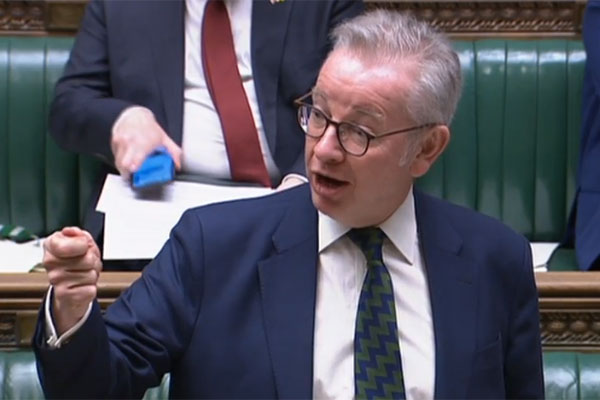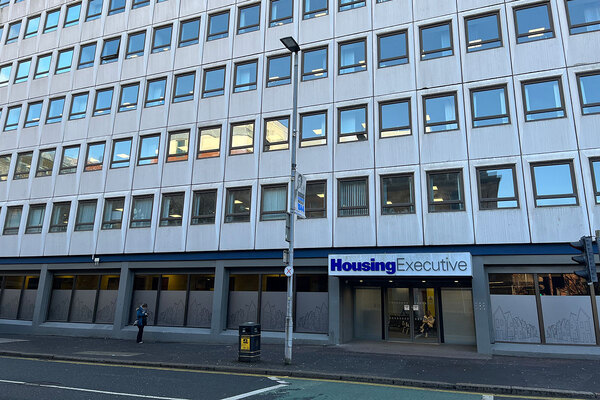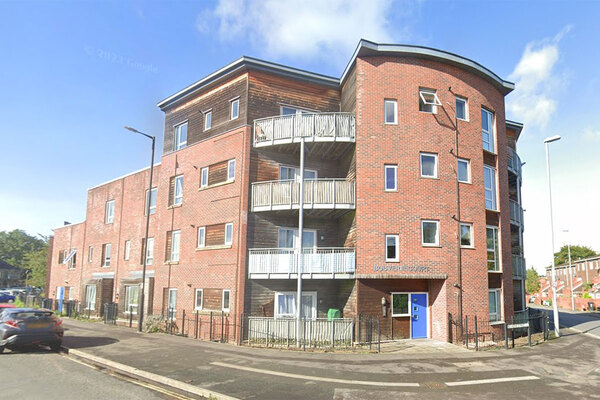You are viewing 1 of your 1 free articles
Plans for a new ombudsman and ‘no DSS’ ban included in private rent white paper
The government has unveiled plans to launch a new ombudsman for private renters and ban landlords from refusing to rent properties to people on benefits, as part of a planned shake-up of the private rented sector.
The Department for Levelling Up, Housing and Communities (DLUHC) is set to publish its Fairer Private Rented Sector white paper later today, with the document proposing a number of reforms aimed at “redressing the balance” between landlords and the 11 million private rented sector tenants in England.
Included in this are previously mooted plans to ensure that advertisements including “no DSS or benefits” are consigned to the past, as well as overhauling the Section 21 ‘no-fault’ eviction process.
The white paper outlines what will form a new bill to go before the current parliament, as promised by housing secretary Michael Gove.
The paper will include plans for a new Private Renters’ Ombudsman, which will be created to enable disputes between private renters and landlords to be settled quickly, at low cost, and without going to court.
Section 21 ‘no-fault’ evictions – which allow landlords to terminate tenancies without giving any reason – will also be outlawed to give greater security to tenancies.
More than a fifth of private renters who moved in 2019 and 2020 did not end their tenancy by choice, including 8% who were asked to leave by their landlord.
Other plans include an end to arbitrary rent review clauses, giving tenants stronger powers to challenge poor practice.
The Decent Homes Standard would also be extended to the private rented sector, with a legally binding agreement that landlords keep their properties free from serious health and safety hazards and in a good state of repair.
DLUHC said that just over a fifth of private renters live in unfit homes. It said that the “new deal” for the private rented sector will extend tenants’ rights and ensure they have clean, appropriate and useable facilities.
To do this, the government is proposing that all tenants are moved on to a single system of periodic tenancies, meaning they can leave poor-quality housing without remaining liable for the rent or move more easily when their circumstances change. A tenancy will only end if a tenant wants to leave, or a landlord has a valid reason, defined in law.
Notice periods for rent increases would be doubled, allowing tenants to challenge these charges if they are deemed unjustified, and councils will be given stronger powers to tackle rogue landlords.
Mr Gove said: “For too long many private renters have been at the mercy of unscrupulous landlords who fail to repair homes and let families live in damp, unsafe and cold properties, with the threat of unfair ‘no-fault’ evictions orders hanging over them.
“Our new deal for renters will help to end this injustice by improving the rights and conditions for millions of renters as we level up across the country and deliver on the people’s priorities.”
The government has promised that the reforms will amount to the biggest shake-up of the private rental market in 30 years, acknowledging that the sector offers the most expensive, least secure and lowest-quality housing to millions of renters, including 1.3 million households with children and 382,000 households aged over 65.
Last week the government introduced the Social Housing Regulation Bill, initially published in May, which means failing social housing landlords could face unlimited fines and Ofsted-style inspections.
Polly Neate, chief executive of Shelter, welcomed the white paper.
She said: “Scrapping unfair evictions will level the playing field. For the first time in a long time, tenants will be able to stand up to bad behaviour instead of living in fear.
“This white paper promises people safety and security in their home, and it makes clear that landlords need to play by the rules. Gone will be the days of families being uprooted and children forced to move school after being slapped with a Section 21 no-fault eviction for no good reason.”
Ben Beadle, chief executive of the National Residential Landlords Association, said: “Whilst headline commitments to strengthening possession grounds, speedier court processes and mediation are helpful, the detail to follow must retain the confidence of responsible landlords, as well as improving tenants’ rights.
“We will be analysing the government’s plans carefully to ensure they meet this test. A failure to do so will exacerbate the housing crisis at a time when renters are struggling to find the homes they need.”
Sign up for our daily newsletter
Already have an account? Click here to manage your newsletters












